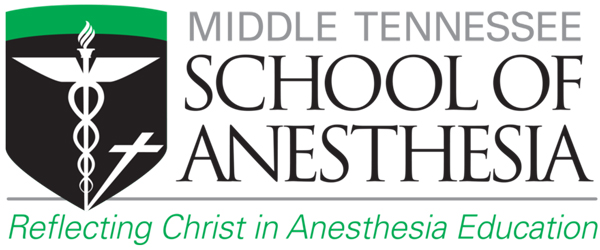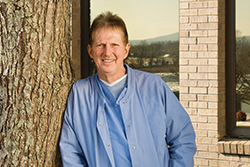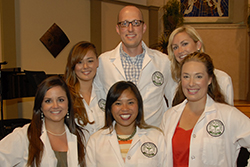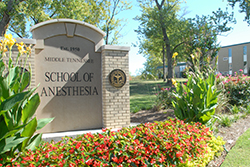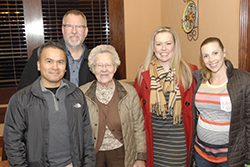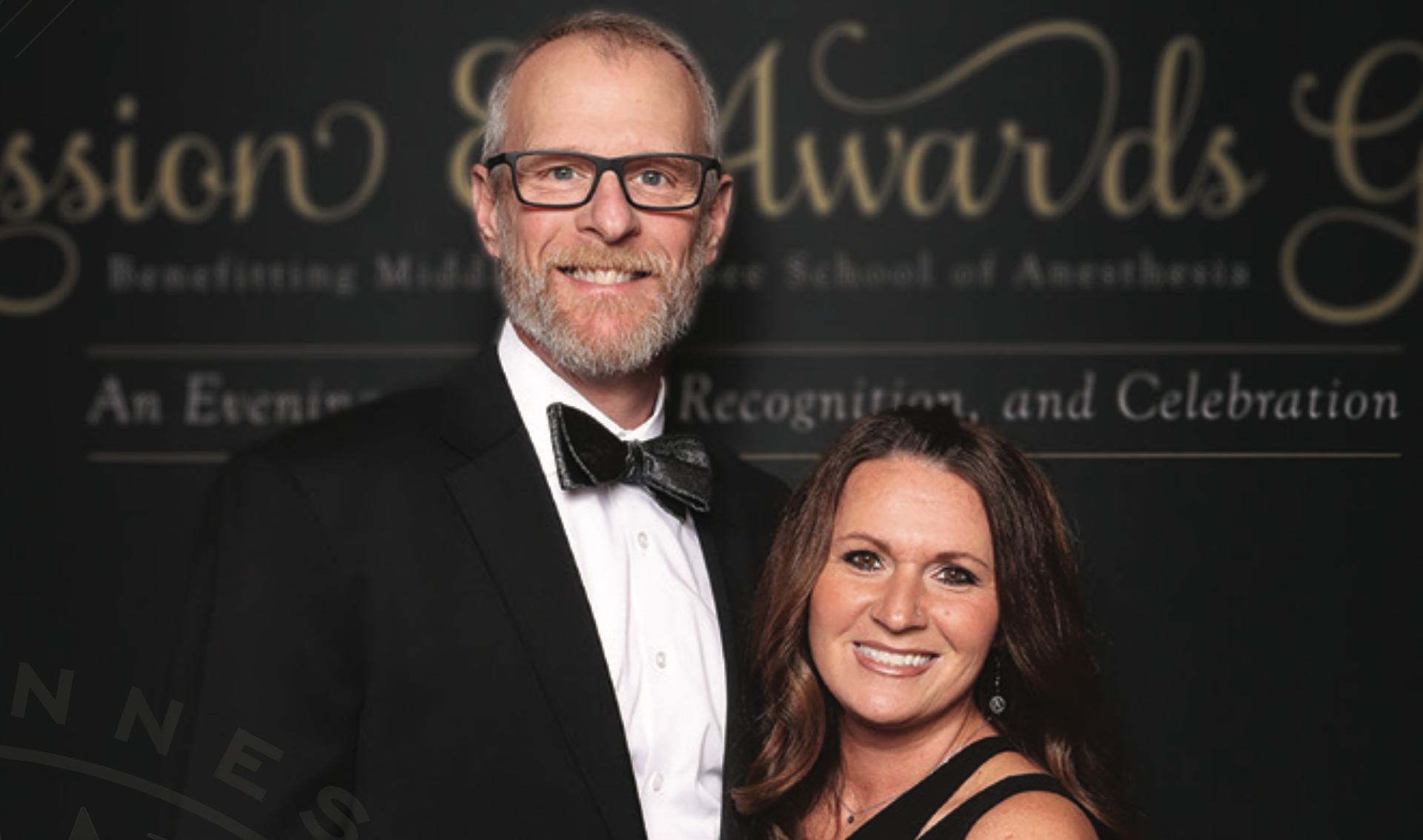
Airways newsletter features Program Administrator Rusty Gentry
September 11, 2023
From the latest issue of MTSA’s Airways newsletter… As MTSA bids farewell to outgoing Program Administrator Rusty Gentry, DNAP, CRNA, deep appreciation for his servant-hearted leadership at the institution was a recurring theme among faculty, staff and students.
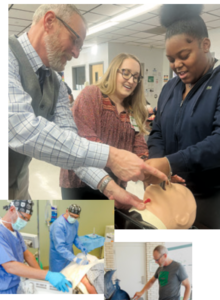 MTSA President Chris Hulin praised Gentry’s efforts in elevating the Doctor of Nurse Anesthesia Practice program; increasing graduates’ National Certification Exam (NCE/boards) pass rates; advancing nurse anesthesia education in Guyana; overseeing the curriculum and program through successful Council on Accreditation (COA) and Southern Association of Colleges and Schools Commission on Colleges (SACSCOC) reaffirmation reviews; and guiding the program through the transition to doctoral education.
MTSA President Chris Hulin praised Gentry’s efforts in elevating the Doctor of Nurse Anesthesia Practice program; increasing graduates’ National Certification Exam (NCE/boards) pass rates; advancing nurse anesthesia education in Guyana; overseeing the curriculum and program through successful Council on Accreditation (COA) and Southern Association of Colleges and Schools Commission on Colleges (SACSCOC) reaffirmation reviews; and guiding the program through the transition to doctoral education.
Gentry joined MTSA as the Assistant Program Administrator in December 2016 and was made the Program Administrator in January of 2017. Soon after coming on board, the school transitioned to doctoral education, which included a site visit by the Council on Accreditation. Later that year, MTSA was approved and received the maximum length of accreditation. Gentry then oversaw the acceptance of two cohorts within one year – the last master’s cohort and the new doctoral cohort, which enabled clinical rotations to continue with the same start and finish timeframe.
Over the course of his tenure, MTSA bucked the national trend of declining board scores with the move to the doctoral degree, increasing to the most recent graduating class which achieved a 97% first-time pass rate.
“We worked hard to develop better strategies of mentoring students using the board preparation tools to properly prepare them,” Gentry said. “We made several adjustments when going to a doctoral degree, and I think those adjustments have improved the program and quality of the education of the students. One major change was going to all-day clinicals. This provided the students more continuity; instead of coming to class for half a day, they could focus on being in clinical all day. We’ve added classes and rearranged things to better fit the curriculum to optimize student learning and to also incorporate the newest techniques.”
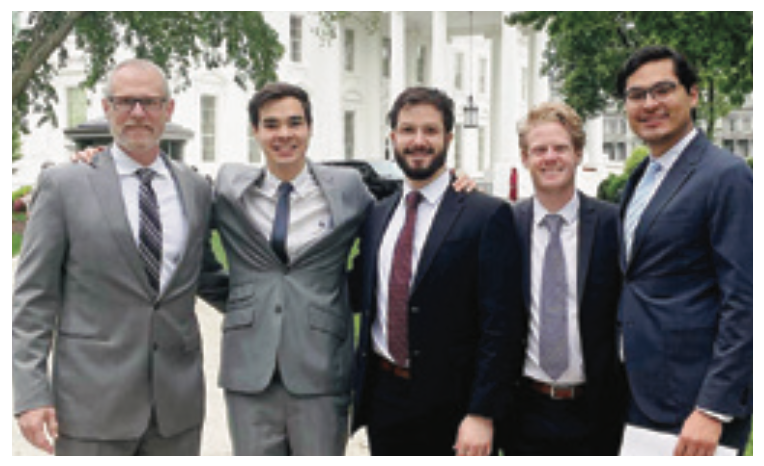 Under Gentry’s leadership, MTSA was one of the first schools that had PoCUS simulation and taught TEE. PoCUS was incorporated into the physical assessment class, and a new clinical evaluation tool was implemented that allows for more robust feedback from preceptors about students’ clinical performance and identification of at-risk students.
Under Gentry’s leadership, MTSA was one of the first schools that had PoCUS simulation and taught TEE. PoCUS was incorporated into the physical assessment class, and a new clinical evaluation tool was implemented that allows for more robust feedback from preceptors about students’ clinical performance and identification of at-risk students.
“I think it’s confirmation when you see former students and they say, ‘The program wasn’t easy, but I was well prepared to provide safe anesthesia.’ That’s what a program administrator wants to hear, that they can function at the level they desire in the anesthesia community whether that be in Nashville or anywhere else in the country,” Gentry said.
“One of the things I’ll miss is getting to see the growth of an individual obtaining a higher level of confidence in their abilities to perform in one of the most stressful environments in the medical profession,” Gentry added. “I’ve seen all different kinds of students – whether they’re timid or strong – and our job is to get them all the way to the end to be that confident provider.”
In Gentry’s view, the growth of the individual is of greater concern than “perfecting” skills to the highest level. “There’s a lot of satisfaction in seeing students reach the end of the program, walk across that graduation stage and start their career. There’s no ‘easy’ button; spending hours in the operating room is the only way to gather that level of confidence in cases, and the exposure to the different types of anesthetics in clinicals comes with time,” he said.
“We couldn’t have achieved what we did during my tenure if it hadn’t been for the faculty and the clinical partners. We’ve grown the number of clinical sites considerably over the years that I’ve been here, and we partnered with clinical sites that we hadn’t been in for 20 years. Without our clinical partners it would be impossible to do what we do,” Gentry added.
“At MTSA we care about our students in a unique, Christian way. I appreciated being able to pray with our students, having the freedom of a Christian heritage, and incorporating my own values into the way I approached the position,” he said.
During his tenure at the school, Gentry participated in five international mission trips with MTSA, including Haiti twice and Guyana three times. Reflecting on those trips, and the guiding principles of his work, he said his message to students is to “always remember it’s about the patient. I always tell them you have a very limited window of opportunity to gain the trust of someone who’s going to place their life in your hands.”
From all those whose lives he has touched, MTSA wishes Rusty all the best and many blessings in his future endeavors!


